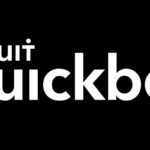Podcast: Play in new window | Download | Embed
Some things you probably didn’t know about Licencing.
Welcome to part 2 of my look at Franchising and Licensing v going it alone. This is from the point of view of someone who wants to buy a franchise or licence as opposed to wanting to create their own.
If you missed part one then I would suggest you go there first. The link is financialgymforbusiness.com/009
I gave practical and emotional reasons for why franchising may or may not be for you. So now I am going to do the same for Licensing.
You will also hear
- How to tell if a licence is really a franchise in disguise
- The importance of intellectual property
- How you can be up and running in a matter of hours
- Why Network Marketing suffers from negative perceptions
- Why the level of support and guidance you need should be a deciding factor for whatever route you choose to take.
And much more
[spp-tweet tweet=”
Does #Network Marketing, #Referral Marketing, #Multi-level Marketing deserve the negative rep? Listen
“]
[spp-transcript]
Transcript
FFS010:Differences between Licencing v Franchising & Going it Alone(part 2)
Welcome to part 2 of my look at Franchising and Licensing v going it alone. This is from the point of view of someone who wants to buy a franchise or licence as opposed to wanting to create their own.
If you missed part one then I would suggest you go there first. The link or url is financialgymforbusiness.com/009
I gave practical and emotional reasons for why franchising may or may not be for you. So now I am going to do the same for Licensing.
First why is it different to franchising?
- One way to look at licencing; is that it is running your own business and all that that entails, but you are using the Intellectual property of another more established company or brand to generate income instead of or alongside creating your own.. IP doesn’t just cover obvious things like names, or logos. It can also take into account intangible assets. It is commonplace to protect things such as designs and processes. Think KFC with its original herbs and spices.
- If you are licencing someone else’s IP then this is not something that may directly affect you, but because you are setting up independently and no doubt build your own presence. Understanding the implications of the legal side of things not only helps you to understand your boundaries with the Licencing company, but what you can do to protect yourself as you grow and become more well known.
The whole protection of assets is a fascinating and eye opening topic. It is one that I cannot do justice to here. But in a later episode I will bring you more on the subject because even if you are a one man operation starting out, you will be shocked to know how you could be affected if your business really establishes itself.
Back to today:-
- Licensing is similar to franchising in that you pay for the right to use a business name, process or product that is the property of a parent company or person. But the Licensor or owner of the licence has much less (if any) say on how you run your company as a Licensee, so is not subject to such strict rules and regulations.
- There are companies out there that call their offer a licence, but when you read the small print it is actually a franchise. For instance asking for royalties on sales is a red flag. Hence the need for a professional to look over any agreement on your behalf.
How does it work?
Find a company
Just as with franchising you decide of a company or type of company you would like to licence from. Once you have made a decision about whose licence you want to purchase; you sign a licensing agreement and pay your initial fee.
Finding parent companies that offer licensing agreements is not as obvious as finding franchise companies because many do not market themselves in that way. So it may be difficult to distinguish them from a franchise. It may only become apparent when you are able to find out more about what the offer is. Just to drive you crazy; if you do a standard online search for companies that licence products or businesses, the results lean towards helping those who want to set themselves to licence a product or business to others, rather than those interested in acquiring a licence. The term franchise is fairly specific, but licence is very generic so “good luck!”
Also some Network Marketing or Multi-Level Marketing companies, offer the option to merely purchase their products to sell without getting involved in the multi-level marketing side of things. But it does require you to be really hot on marketing the products yourself.
But if you are merely licensing, odds most if not all marketing will be down to you anyway.
Due Diligence
There is nothing new here. Do your homework. As with franchising, you are likely to start incurring legal and other professional fees.
However, it is often not strictly necessary in the licenced arena because your commitment to getting started can often be very small.
There may be an opportunity to meet with prospective companies; some have open days or events where they give you more details about the opportunity and what is in it for you. It is also often much easier to speak to other licensees of the product or service because the relationship with licencing can be less formal than it is with franchising. Thus hanging onto people is more difficult.
What do I mean by that?
Think about something like Forever Living Products, A.C.N, Amway, Anne Summers, Tupperware and other similar opportunities. The people who sign up are free to leave the team with little in the way of consequences at any time. Consequently keeping people motivated to continue is a battle for organisations that use this model. One such strategy is to incentivise people by rewarding them if they refer others into the business. It is a great way to expand the reach of the licensing organisation and see that their recruits see their income increasing.
The downside is that it has attracted people who try and recruit everyone that dares to give them eye contact, which given the business model a negative reputation. We have all been to that networking event where that person has managed to firebomb their business card to every person in the room by the end of the night. Not to mention invite them to coffee so they can “tell them more”. And still manage to not take an interest in anyone else at the event.
I have seen a recruiter of a product, which I won’t mention, invite a millionaire entrepreneur to an event to find out more so they could “boost their income”. The millionaire already made more in bank interest than he would have done in a year in that business.. Even with today’s woeful interest rates. A little listening and less recruiting would have avoided that awkward moment.
Fees
Generally you pay your upfront fee or make your starter purchase, but there are usually minimal repeat costs. For more formal agreements; licence fees can be from a few hundred to thousands. I worked with a lady who licenced her system for setting up a day care centre. But as a rule, they are cheaper than franchises.
The initial fee covers getting you set up and trained.
For instance, you may only be required, to buy sample products to see if you get on well with them. You need to like what you are selling and feel confident about endorsing them to other people.
In exchange they give you:
- You may get the right to use their company identities, such as trademarks and logos. But often with licenses, this is of little benefit because licensed businesses tend not to have the same level of brand awareness as franchises.
Many rely on you to create brand awareness under your own name. Which can be very attractive if you are set on creating your own brand anyway; Maybe you merely want a headstart with regards to what you can sell. You could also use this model to add products and services to your existing company, or just become a reseller. Similar to how many independents operate in the telecoms industry.
- You could totally create your own niche if you were so inclined. In fact, someone I am aware of did just that. This is second-hand info so forgive the lack of actual detail.
Take this story of a corporate employee. I like to name my characters, so I’m going to call him Roberto (you have to do an Italian accent when his name comes up). Roberto who was desperate to find a way to start his own thing. He didn’t feel confident to start a business from scratch producing his own products or services. Franchising didn’t appeal, plus he didn’t have the money to invest in any of the ones that did interest him.
One day he found out about a weekend retreat where an entrepreneur trained others on how he made his money in a particular industry. He introduced them to the possibilities and opportunities available if they copied his method. But instead of just teaching or telling people what they needed to do. For a fee, you got a more or less turnkey business in a box. What you need to do to find the deals.The scripts to use at each stage of negotiation. The paperwork and agreements to use. Handling the money aspects.
This came with no strings attached as to how you used it or what you called your business. Like buying a tv. You pay your money and take it home and it’s nobody’s business what you watch on it.
Though from what I gather you do also get to become part of his inner circle so you get access to his contacts if you need further advice or assistance.
But Roberto being the rugged individualist that he is, didn’t use the system as he had been shown. In fact, he pretty much disregarded the bulk of it. During the weekend retreat, he became fascinated by one particular method, of one particular part, of one particular aspect of the business. He took that method and created his entire business around offering just that one thing; and from what I gather it is working marvelously out for him.
As in Roberto’s case, if there are little to no rules or guidelines so you are pretty free to do what you like.
Am I a fan?
If you listened to the previous episode and heard the reasons I gave for not loving franchises; you may well be thinking that I have couldn’t have anything against buying a licence. And actually you wouldn’t be wrong.
Yes, I meant to say it that way.
I quite like the idea of being a reseller (affiliate if you are in the online marketing space). But again, if you exclusively do business this way and do not create any products or services that you have developed or own, you are tied to a licence in lieu of having anything else. But most important
But other than that; It is definitely something to think about. It would save on the research and development costs associated with creating products and services to take to market.
Well, that is the end of part 2 of my mini take on the ins and outs of franchising and licencing.
Download your 5 Tools to Freedom
How to Rate & Review a Podcast in iTunes
http://serialpodcast.org/how-to-listen (This is brilliantly done)
Email [email protected]
[/spp-transcript]
Show Links & Resources
Azrights.com
Download your 5 Tools to Freedom
How to Rate & Review a Podcast in iTunes
http://serialpodcast.org/how-to-listen (This is brilliantly done)
Email [email protected]

-min_469kb.jpg)





